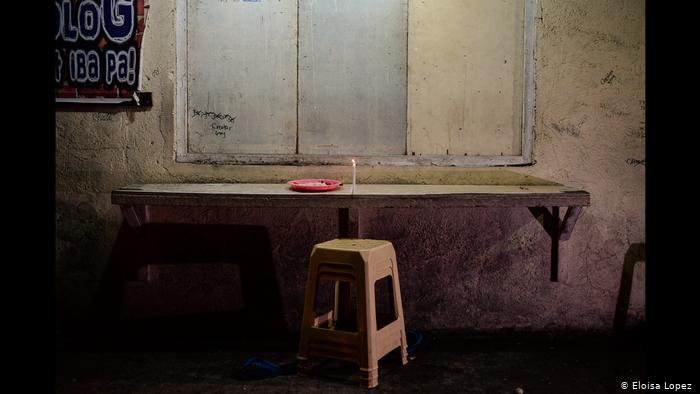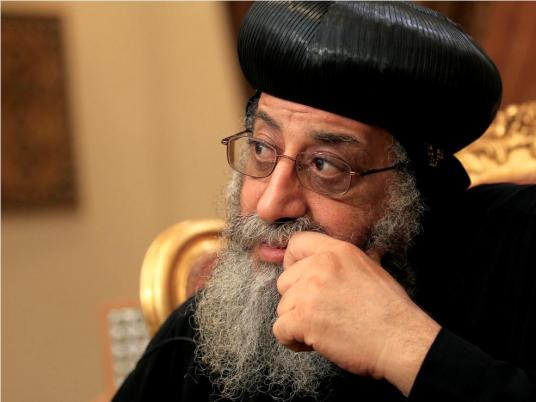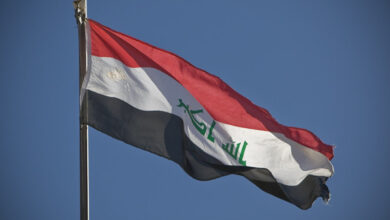
Eloisa Lopez’s reason for chronicling Philippine President Rodrigo Duterte’s drug war with her camera is haunting: “I kept thinking, if I don’t go, someone might get killed and we won’t be there to document it, and no-one would know what had happened to them.”
With grit and passion reminiscent of Niedringhaus herself, Lopez has relentlessly documented the nightly extra-judicial killings in her home city of Manila since Duterte came to power in 2016. The jury acknowledged that Lopez herself was “in the cross-hairs of the police every night.” The $20,000 (€16,200) prize is awarded by the International Women’s Media Foundation (IWMF), which since 1990 has been fighting for press freedom and supporting courageous female journalists.
Read more: An eye for dignity: War photographer Anja Niedringhaus
Speaking about her work, Lopez said that courage for her was not so much about defying risks to her physical safety, as “the emotional toll of hearing families who had lost loved ones, seeing violence and death every day, and still showing up.”
Lopez, who now files for Reuters, started out as a photo correspondent for a daily newspaper. Aged 20, she decided to join a group of journalists on the night beat “to test her metal.” Her first shift was “unlike anything I had ever witnessed,” counting five victims at one crime scene.
‘Interruption of life’
In one of Lopez’s most stark photos, however, there is no body to be seen. Instead just a candle and a half-eaten plate of food can be seen at a canteen bench. Out of frame, is the body of a young man shot and killed by unidentified assailants while eating dinner near his home. The murders documented by Lopez, are “an interruption of life,” she said. “Just like that, a child is orphaned, a woman is widowed and a family is broken forever.”
Lopez told DW that she dedicates the award to her fellow journalists and families of the victims “to show them that they are not alone in fighting impunity,” at a time when “media attention has moved on from the story.”
The IWMF jury also praised the work of two other freelance photojournalists.
Tasneem Alsutan, a Saudi Arabian investigative reporter, was recognized for her work focusing on social and gender issues in the Middle East. The aim of her work, she explained, is to “trigger fervor in women to voice their battles and not suppress them.”
Life through the lens
Her own courage as a photojournalist in a male-dominated environment has highlighted that of other Saudi women. One of her most striking works shows the veiled, bowed head of a mother mourning her sons, who had been killed trying to protect their neighborhood Mosque from an attack by the “Islamic State” group. “The woman had just lost her children and nephew and yet still insisted on empowering other mothers to raise their sons and daughters to be selfless in the face of terror. She’s a hero to me,” Alsutan said.
But looking back on another of her photos is bittersweet. The shot shows the defiant face of a woman taking to the road a matter of hours before the driving ban was lifted. “I just wish that the women who were arrested a few months before the driving ban was lifted were free now to share in the happiness,” Alsutan said.
American freelance photojournalist, Mary Calvert, was praised for her harrowing reporting on the sexual abuse of men in the US military. “The chains of command mean that people I’ve photographed have had to report the crime of rape or sexual assault or harassment to the perpetrator,” Calvert explained.
As a result many of her subjects “wear that assault on their face every day,” ending up trapped in a world of isolation. Instead of “shedding their shame and tears in the therapist’s office, they often sit silently suffering in unkempt, darkened rooms or on the street corners that many call home.”
“It’s a death of spirit,” she said, “when there is no one to help you and its very difficult to obtain justice.”
Read more: ‘My camera was like a shield,’ says Syrian war photographer
Calvert, whose work has taken her to her to Afghanistan, Iraq, the Palestinian territories and the Democratic Republic of Congo, sees her role as a photojournalist very clearly. “There are things that are happening that are devastating. It is our duty to show the human toll behind these statistics,” she told DW.
Lopez, Calvert and Alsutan will be honored at a ceremony this June in Washington D.C.




